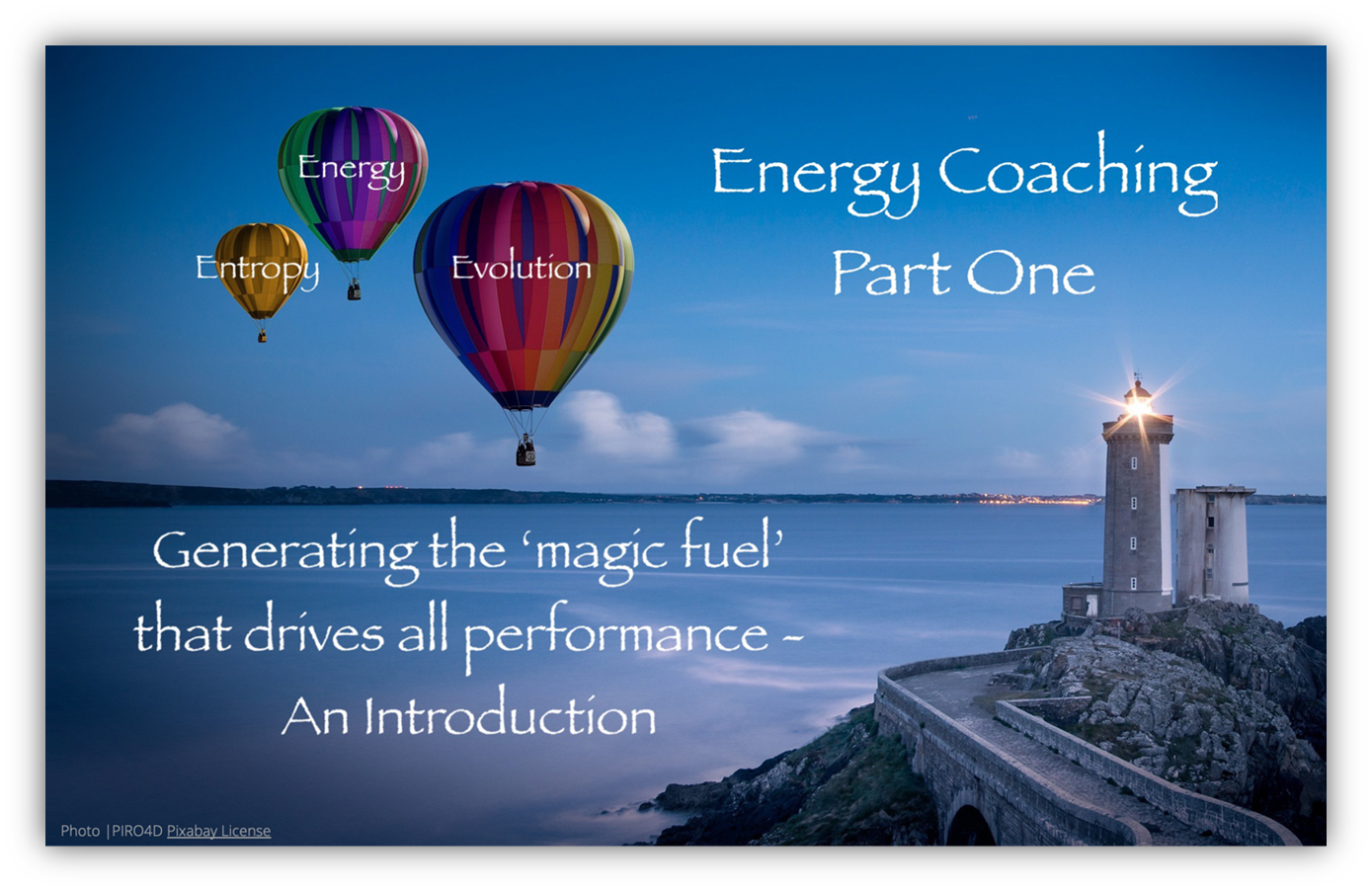My Ikigai as a Coach by Ai Sakura (Aimee)
Welcome to my blog! Here, I will share with you how I transitioned my professional career from my corporate job (venture capital sales) into coaching. There was a lot of soul searching done in the process which I will dive deep into, and will share with you some concepts that helped me in my self-discovery.
It is my wish to connect with Coaches from around the world, and share new insights and findings on platforms such as the good coach. I would also love to hear more about your experiences in your self-discovery as a coach as well.
Who I am (or was)
I started my career in sales fresh after college graduation in Canada. When I started out, I had an entrepreneurial spirit (just like my father) and wanted to build on my skill sets, such as negotiation skills, interpersonal skills, and communication skills. I knew these skills would come in handy when I build my own business in the future. So, I began by selling Real Estate, and I developed these skills while helping people find their dream home.
After a few years in the industry, I wanted a new adventure and decided to get my Masters in a foreign country. I went to China to study for a Masters in International Business in 2018 because it was the largest and fastest growing country, and... I enjoyed Chinese food. For two years, I was blessed with the opportunity of making local friends and learning about the distinct history and culture. When the Pandemic hit in 2019, I graduated and joined a corporate job in Venture Capital sales because I believed it would be a fun challenge. As you can see, I was very free-spirited and eager to learn and try new things.
Inside my work, I helped set up Smart Cities Initiatives across Japan and worked with local governments and MNCs to bring new ideas to Japan. As a sales rep of a VC firm, I talked to over 60+ company accounts at the executive level, convincing them that investing in early stage Startups and the Accelerator program is beneficial to their future growth and that they do not want to get “left-behind” in innovation like we saw in cases of Nokia and Blackberry. At that time, I had a lot of energy and stamina as a new grad and was excited about all the new projects.
Reflection & Introspection
Few years later, the honeymoon phase of sales worn off. I realized the tasks were repetitive. While new companies join the Accelerator program and new projects/verticals emerge, I was not sharing the passion or excitement as they did. My role was simply to sell them a service that I did not quite feel excited about. I also was not growing, and not building up new skills as I should be doing. Frankly, without the excitement of meeting new people and seeing new projects, the role itself was just stressful, boring, and unfulfilling. This led to over-emphasis on “excitement” or “dopamine-craving mindset” instead of building something that can bring long-term satisfaction.
Inevitably, on many occassions I experienced burn out, confusion and disorientation because I was “busy” but not fulfilled. I started to question what I was doing and if it was worth it. At my age, 26 at that time, I really should be advancing on my skillsets and expertise. The problem was I did not know what I was truly interested in and I did not quite understand why I was experiencing burnout and confusion. The short-term dopamine was masking the long-term anxiety that was slowly building up.
One day, I was taking a walk and I heard a voice within that motivated me to think about the next phase of my career. It was time to find something I was truly interested in.
While I was examining my skillsets and thinking about new possibilities, I realized one big thing - the job role shapes the way you think and behave.
Sales people are trained to make quick decisions of people, move really fast without much emphasis on planning, and run on adrenaline highs to hit the insurmountable KPIs. It also required constant momentum which makes people unable to slow down and think. I noticed on my daily personal tasks, (even as I write this blog), it has become difficult to think and write freely (my hands start typing faster than my brain can think). Evidently, I knew it will take time and effort to rewire my brain.
Through soul searching, I realized that sales is not me. Sales trained me to be a certain way, but was putting me in a path that was not in line with my personality or identity. I knew I needed to pivot to find a career that I feel more meaningful and allows to be more myself. In the meantime, I started talking to a therapist on my general anxiety from sales, and to my dismay, it did not help me. This is because I already knew that sales was not for me, and I did not need to investigate the why of that - but rather wanted support on how to move forward. Therapy focused on what is holding me up that is affecting the now because of past experiences, but I wanted to focus on the future.
Why Coaching?
I’m a big fan of reading, so I decided to read books on psychology to help myself understand and relieve my anxiety and improve my mental wellbeing. One day, I was particularly drawn to the book, “Positivity” by Barbara Frederickson. She is one of the leading researchers on positive psychology and the upward spiral theory. The book changed my game because it emphasized the positive side, which I felt was the missing piece in my therapy sessions. It also touched on meaning of life, which is another ignored area of traditional psychology (Funder, 2019, p. 445).
I was inspired to learn more about positive psychology and the science of happiness. Backed by new research, I realized a positive psychology approach to mindset and behavioral changes can have a long-term positive impact on wellbeing of an individual.
With my growing interest in positive psychology, I decided to enroll in post-grad positive psychology training at the College Executive Coaching. There I gained an ever better understanding why I think, feel, and act the way I do, and I began to self-coach myself to a positive mindset using new techniques. For starters, I created a morning routine, with deep-breathing meditation techniques, daily affirmations, gratitude lists, and morning walks. By adding these exercises to my morning routine, I started to become more self-aware of my own emotions and state of being throughout the day. I was less impacted by the thoughts and feelings and began to experience less anxiety and worry. I pondered how I could potentially help others navigate similar experiences. I also asked myself few important questions - On my death bed, what would matter most to me? And, how do I want people to remember me by (my outward identity)?
And, then I recalled…
Since childhood, I like to connect with people on a deeper level. Often, people (even strangers I just met) open up to me about their difficulties and I felt those encounters were beautiful and special. I remember I appreciated everytime people genuinely shared their vulnerable side to me. That’s what makes us human and it reminded me that we are all going through our journey of learning and self-discovery. And, most importantly, we are in this together.
One time, I was traveling with my husband and we entered a paintings shop. The owner of the paintings started sharing more about his work and that’s when I noticed a sense of sadness and fear in his eyes. I asked him what was going on and he opened up to me about his health situation and his surgery on that weekend. I remember that encounter felt special because we were both moved by the feeling of deeper connection.
Before I left, the owner gave me a postcard with his favorite painting. It’s a beautiful painting. It’s his life’s work, and it meant a lot to me.
When I look back and think about the moments in life that truly mattered to me, it is when I was able to build a deeper connection and lift people up. It could be one encounter, or it could be multiple encounters with one person, but what mattered was that I was able to be a positive influence for them at that time. Also, I recognized my own super-power - love for strangers. I have a lot of love for the people that I meet and that open up to me, and I truly want them to lead the most fulfilling life. By being a coach, I am able to utilize my super-power (strengths) and core values to make positive impacts in this world.
Integrating Positive Psychology into self-discovery and why is it good for coaching?
The book on positive psychology helped me with my own progress in self-discovery and I would like to share more about how it has helped me to become the coach I am.
Positive psychology is part of the studies of humanistic psychology, which believes that one’s conscious experience of the world becomes one’s reality.
As you know, we all carry different experiences and values and therefore have different perceptions and interpretations of events. An example would be two people receiving the same message from the boss and perceiving it and interpreting it differently. Another example would be two people looking at the same art piece and experiencing different emotions or/and being inspired differently (similar to the artist who gave me a postcard).
Further, the concept of constructive reality (each person perceives, interprets, and constructs their own reality based on their values, knowledge, and experiences) is important when it comes to coaching, because it works with the premise that our reality may not be our client’s reality.
We may guide our clients in a positive direction through our sessions, but at the end of the day, the clients must decide for themselves what it is they want. (From my experiences, clients often know what they want deep down and do not like to be told what they want).
That said, as coaches we may use positive psychology to examine more closely how our clients perceive and interpret the world around them, and identify whether their thoughts, emotions, and behaviors are in anyway prohibiting them from constructively working towards their goals. For example, do our clients have healthy thoughts and behaviors? Are there any habits preventing them from achieving their potential? And, how do we help them overcome their unique challenges?
The point is to get our clients to the destination they want to be at by working at enhancing their own conscious experiences.
Positive psychology also touches on the meaning of life, which I believe is important to talk about. I believe we all have a “calling”, which is how our souls try to express themselves on Earth. From my own experiences, I felt that when I deviate from my core values and do things that I don’t believe in, I am more prone to experience burnout and stress very quickly. But, by consciously choosing to do what you’re good at and what you find meaningful, you experience more joy and excitement. I also understand from my introspection that once you find your soul’s “calling”, you will have a difficult time doing things that are no longer in alignment with that calling. For example, once I realized that my life’s mission is to be a coach and guide others, whatever choices or decisions that are not getting me to my coaching goals drained my energy and became short-lived.
From my own experiences, I believe the key to happiness is to
discover your unique strengths,
identify your core values, and
contribute to society through those strengths and values.
In my case, it is helping people achieve their potential and making a positive impact. It is also sharing my story and journey with other coaches.
What is Ikigai? (soul searching technique)
Before you go, I want to share with you one more concept that I find useful in the phase of self-discovery. It is a famous concept in Japan called “Ikigai (生き甲斐)”, which touches on one’s wellbeing and purpose in life. The chart below identifies four categories that give life purpose.
According to Ikigai, what gives life purpose and makes life more fulfilling are, “What you love”, “What the world needs”, “What you are good at”, and “What you can be paid for”. The idea is to find a balance among them, or even better, find something that align with all four aspects.
Now, I know that finding a perfect balance may be challenging for many. Not all have the luck to do what they love right after graduation. I was the same. But, I believe there will come a time when we all have to sit down and ponder whether what we are doing now makes sense or not. What is the missing piece? Why do we not feel fulfilled?
It’s good to take a close look at the Ikigai chart and see where you are.
Citation
Funder, D. C. (2019). The Personality Puzzle. W.W. Norton & Company.
Connect with Ai Sakura (Aimee) via Linkedin →Please add me on Linkedin, would love to connect.
Aimee is a firm believer in the transformative potential of coaching. She has received training from prominent positive psychologists such as Jeffrey Auerbach, Barbara Fredrickson, and Robert Emmons. Aimee also holds a seat on the Coaching and Talent Development Board in Silicon Valley. She is a certified PCC coach with a corporate venture capital background and brings strong business acumen and coaching presence to her clients.












![How existential philosophy shaped my coaching practice by Yannick Jacob [Guest]](https://images.squarespace-cdn.com/content/v1/55f92f56e4b02e1b84dd105a/1553064709600-R60IENMGXR5A9IJX1GH7/YJ+1.png)

